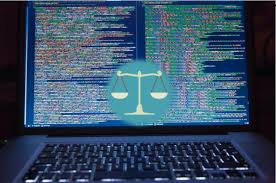Asia Times reports…
Understanding the legal discipline often seems hard for the uninitiated. Through my columns, I try to democratize digital law, a subject that, in my opinion, is both insufficiently taught and inaccessible.
Yet the application of the European General Data Protection Regulation (GDPR) makes its impact visible for everyone, and this includes citizens, associations and even businesses of all sizes and even beyond the borders of the European Union.
To win any artificial intelligence battle, digital law has to increasingly integrate other disciplines, especially computer science and cognitive psychology. Logic, probability, perception, reasoning, learning and action are the resources that will serve as common denominators.
Many legal professionals are known unfairly as impediments to progress who go around in loops. Lawyers are still too often solicited at the end of a project, or even worse, at the final stage, which is litigation.
Today, 65% of available legal technology (LegalTech) ends up with lawyers and large corporations and it is being used for smart contracts (contracts based on the blockchain), secure exchange of documents, mobile applications for accessing court decisions or customer relations and analysis (data, contracts, etc.), decision-making aids, chatbots and robotic legal asistants.
But what about when we move to “automatic” tribunals that uses predictive justice? Will these fundamentally question the future of justice? Or can the comprehension of the discipline, the rule of law, make it possible to find the right balance, between technologies and the needs of the society, for this to become reality?
Aware of those challenges of technological innovations in the functioning of civil justice, the French Senate Law Commission organised a legal tech forum in June to debate exactly this after the Constitutional Council, the highest constitutional authority in France, in its most recent decision, closed the door to automated justice due to concerns around the protection of personal data.
The enhancement of the law
The Achilles’ Heel of law technology is training. In France digital law training is only available at the later stages of a post-graduate law degree. I only teach digital law to second year business school students, who have chosen the topic as a form of a specialisation, and as part of a “big data” component for post-graduate engineers. This course specifically looks at the challenges of a digital business from the point of view of a manager and covers protection and sharing of personal data, e-commerce, cybersecurity, “robot” law, blockchain and big data.
But today IT spreads across all aspects of law. Accordingly all legal fields should integrate their own digital dimensions. Specifically, predictive justice and smart contracts should be incorporated into all judicial institution teaching.
Any dissemination of the different components of the law of the digital world will require us to think about each subject of law in the etymological sense of the term. That means we have to think carefully, and at length, about it. At the moment, such reflection, which is certainly under way, is still struggling to bear fruit.
The first obstacle is time. To incorporate digital law into every first year law curriculum requires modifying all courses.
The second obstacle is human nature. Current teachers do not have any training on this subject. So how can any required level of excellence be guaranteed?
The third is difficulty. Our essentially universal subject is based on legal instruments adopted not only at national level but also by the European Union, or even global instances. However, the initial training of lawyers hinders this transversality: European law and international law in many university courses are focused on the “general” topics not on specialisations. For example, contract law is taught in the first year, and the law of international contracts at the end of the course.
Above all, learning computer science is a prerequisite for understanding the purpose of digital law, but this dimension is either ignored by training sites or is presented as optional. On the contrary, digital law must go through a prior acquisition of the pillars of computing: data, algorithms, languages, machines and bugs.
Read more at http://www.atimes.com/article/if-predictive-justice-is-coming-legal-geeks-must-multiply/




